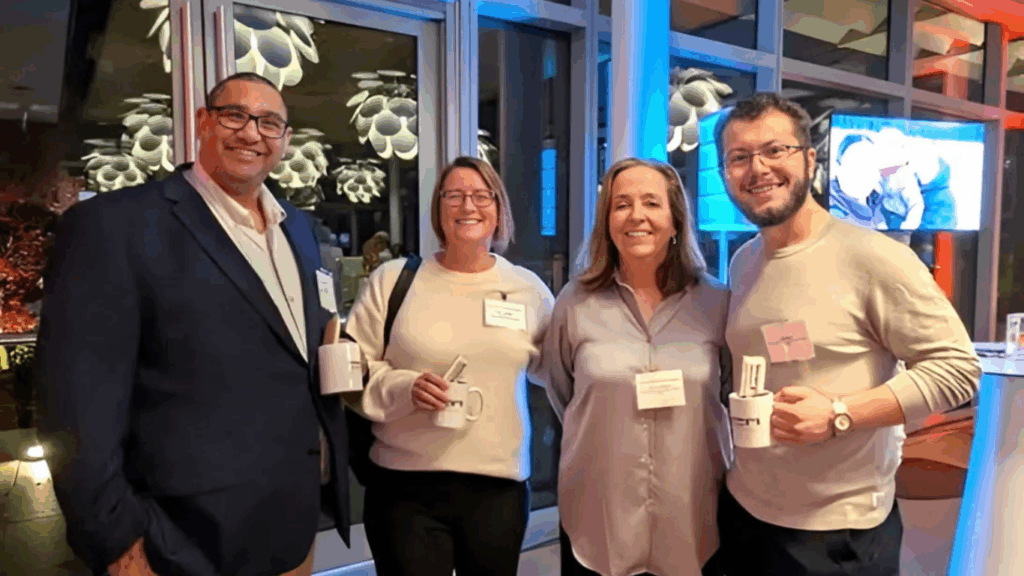The government is expanding its services and support for young adults who have spent time in foster care. In this article, you’ll learn about the BC government’s expanded Tuition Waiver Program, as well as Strengthening Abilities and Journeys of Empowerment (SAJE) and several other funding and support sources.
Accessible education
Post-secondary education can be the factor that makes the difference between a “meh” life and a thriving life. For young people with involvement in the child welfare system, however, barriers such as the cost of post-secondary tuition or a lack of family support can be much harder to overcome.
To address these barriers, government programs like the Strengthening Abilities and Journeys of Empowerment (SAJE) and the Provincial Tuition Waiver Program are available for youth transitioning out of government care. Additionally, non-profit organizations offer various scholarships, bursaries, and grants specifically for youth with foster care experiences.
Tuition waivers
The Provincial Tuition Waiver Program covers tuition and eligible fees for current or former children and youth in care in British Columbia.
- In September 2017, access to free tuition was granted at all 25 post-secondary institutions in BC.
- In July 2018, the program was expanded to include trades apprenticeships and training.
- As of August 1, 2023, the age cap for tuition waivers has been removed!
To be eligible for a Provincial tuition waiver, you must be:
- Studying full- or part-time at the undergraduate level at a BC public post-secondary institution, the Native Education College, or an approved union-based trades training provider.
And must meet one of the following criteria:
- You were adopted through the BC Ministry of Children and Family Development (MCFD) or an Indigenous Child and Family Service Agency (ICFSA).
- You were formerly part of the BC Ministry of Social Development and Poverty Reduction’s Child in Home of Relative Program.
- You were formerly under the legal status of any MCFD or ICFSA (Indigenous Child and Family Services Agency) while living in BC or while placed by MCFD or ICFSA under an Interprovincial Placement Agreement (IPPA) at the time you turned 19, or you have been in this status for at least 24 months (730 days), either consecutively or in any combination.
Here are answers to the most frequently asked questions about tuition waivers:
I was in care, but not for two years in a row. Am I eligible? Yes, all experiences in care, in a youth agreement or in the custody of family members may be combined to meet eligibility requirements.
I was in care, but I was adopted. Am I eligible? Yes, if you meet the other eligibility criteria, including being in care for at least two years.
What if I change programs? No problem! Any program at any public post-secondary institution (listed on this AgedOut.com page is eligible.
Where can I go to learn more about trades apprenticeships and training? The skilled trades and credentialing system for the province is lead and coordinated by SkilledTrades BC (formerly the Industry Training Authority). If you are unclear about how to get into trades, check out SkilledTradesBC.
Do I have to pay this money back? No! This is not a loan program.
How long can I receive a tuition waiver? You can receive a tuition waiver until the completion of your program.
I was told that I was not eligible, but I think I should be. Who can I contact for more information? If you believe your time in care may have been miscalculated, you can contact the System Navigator with the Ministry of Post-Secondary Education and Future Skills at tuitionwaiver@gov.bc.ca.
Strengthening Abilities and Journeys of Empowerment (SAJE)
The Ministry of Children and Family Development (MCFD) offers the SAJE program, which provides offers young adults improved income and housing supports, wellness and mental health benefits, and opportunities to pursue life-skills, training and cultural connections up to their 27th birthday.
You can apply to the SAJE program if you are between 19 and 26 years old (up to your 27th birthday) and had one of the following legal care statuses:
- Reached your 19th birthday under a Youth Agreement, Continuing Custody Order, or personal guardianship of a director.
- Achieved permanency between the ages of 12 and 19 (through adoption after being in care or under sections 54.1 or 54.01).
- Accumulated 24 months of time in care between ages 12 and 19 in any care status, excluding 54.1, 54.01, or adoption.
- Were in a comparable arrangement under Indigenous law.
Not sure about your eligibility or what you qualify for in the SAJE program? Click here to request a SAJE eligibility check.
If you want to learn more about SAJE, visit AgedOut.com/SAJE.
Other supports
Finally, there are several additional funding opportunities for young people leaving care.
The Learning for Future Grant provides an annual grant of $3,500 per program year to students who meet the eligibility requirements for the Provincial Tuition Waiver Program. This grant can help cover expenses such as textbooks, computers, and supplies, which are not included in the tuition waiver.
Some non-profit organizations also offer bursaries and scholarships. A bursary is financial assistance awarded based on your financial need, typically given as a cheque at the start of the school year. In contrast, a scholarship is awarded for achieving high grades or other accomplishments.
The Belonging Network runs three bursary programs every year:
- BC Orca Bursary Program: It awards financial assistance to youth from care who plan to pursue a post-secondary program at an accredited BC institution.
- Joy MacPhail Bursary: It provides financial support for post-secondary studies to a young person who joined their family by legal adoption or other forms of permanency.
- Vancouver Film Studios Indigenous Bursary: It provides financial assistance to Indigenous people who plan to pursue any kind of formal or informal career-related education or training in BC.
To learn more about our bursaries and how to apply, check out our bursaries page!
Hopefully, this article has helped you understand some of the supports available to you or the young people in your care. For more details, visit AgedOut.com/education, where you can find information sheets about applying for student loans and options for completing high school.





